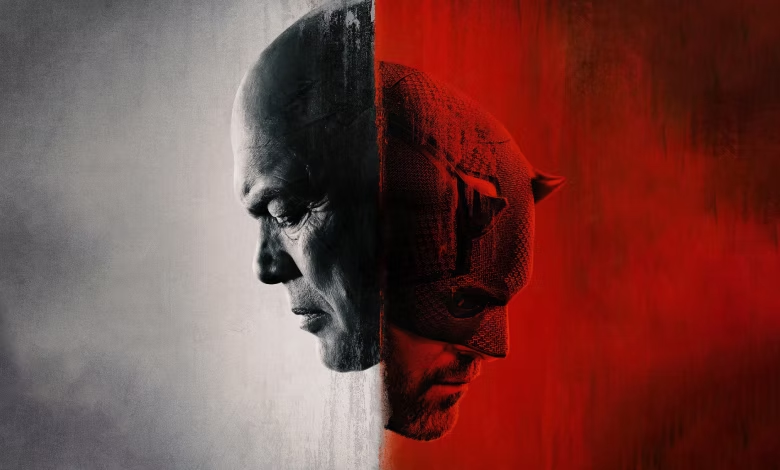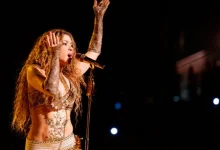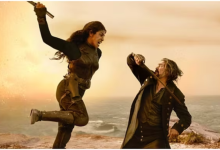Marvel TV Shows Bring New Life to MCU After Avengers: Endgame

When WandaVision debuted in early 2021, it marked a bold new chapter for the Marvel Cinematic Universe (MCU). As the studio’s first real push into serialized storytelling on television, the show struck a chord with fans by blending emotion, mystery, and creativity—breathing new life into the franchise after the high of Avengers: Endgame.
In the wake of Endgame, uncertainty loomed large. With iconic heroes like Iron Man and Captain America stepping aside, fans weren’t sure if Marvel could sustain the momentum. But then came WandaVision, turning Wanda Maximoff into a complex lead and giving the audience something they didn’t expect—a surreal, grief-laced journey wrapped in sitcom nostalgia.
Deb Chakraborty, a Marvel and anime fan, summed it up: “WandaVision was when Marvel’s OTT era truly began. Who thought a sitcom-styled breakdown would launch a new survival phase for the MCU?”
That enthusiasm, however, didn’t remain constant. Shows like The Falcon and the Winter Soldier, Loki, Hawkeye, Ms. Marvel, and She-Hulk drew mixed reactions. While Loki impressed with its time-travel narrative, others, like She-Hulk, failed to resonate with longtime fans.
Engineer and MCU follower Viren noted, “Loki was excellent and brought the multiverse into focus. Moon Knight also stood out, but She-Hulk just didn’t work for me.”
Indeed, Moon Knight became a fan favorite, largely due to Oscar Isaac’s performance and the show’s distinct storytelling, though not everyone was sold on its direction. Even within the film lineup, Marvel faced turbulence. Eternals divided fans, and Doctor Strange in the Multiverse of Madness left audiences confused despite exploring Wanda’s arc further.
One film, however, managed to unify the fanbase: Spider-Man: No Way Home. Its multiverse spectacle brought back Tobey Maguire and Andrew Garfield, delighting fans with nostalgia and deep emotional payoff. Nakul Ahuja, a writer and Spider-Man enthusiast, said, “Each version of Spider-Man carried heartbreak. Their shared pain and healing made it unforgettable.”
But the increasing volume of Marvel content began to feel overwhelming. Series like Secret Invasion and Echo were criticized as bland, and The Marvels became the studio’s first major box-office failure.
In the chaos, one film that quietly shone was Shang-Chi and the Legend of the Ten Rings. With a fresh cast and grounded storytelling, the film drew comparisons to Black Panther for its cultural depth and emotional resonance.
Amid this hit-or-miss phase, two shows—Agatha All Along and Daredevil: Born Again—emerged as game-changers.
Agatha All Along, a spin-off from WandaVision, brought back Kathryn Hahn as the witty and wicked Agatha Harkness. Mixing dark magic, humor, and mystery, the show carved its own identity. Student and fan Manasvi Bansal noted, “Kathryn’s performance was magnetic, and the show’s blend of suspense and charm made it worth the watch.”
Meanwhile, Daredevil: Born Again marked the return of Charlie Cox as Matt Murdock, winning fans over with its grounded tone and emotional storytelling. Departing from multiverse chaos, the show offered a stripped-down, raw perspective that reminded fans of the MCU’s core strength—personal stakes.
“Daredevil isn’t just strong—he’s real and vulnerable. That’s what makes him compelling,” said Nakul.
These two shows rekindled excitement in Marvel’s TV division, proving that meaningful, character-driven narratives could thrive beyond the big screen.
Looking ahead, Marvel is set to close out Phase Five in 2025 with Thunderbolts and launch Phase Six with Fantastic Four: The First Steps. Fans also await the mega-events Avengers: Doomsday and Avengers: Secret Wars.
At a time when Marvel Studios’ future seemed uncertain, Agatha All Along and Daredevil: Born Again reminded viewers why they fell in love with the MCU in the first place.




